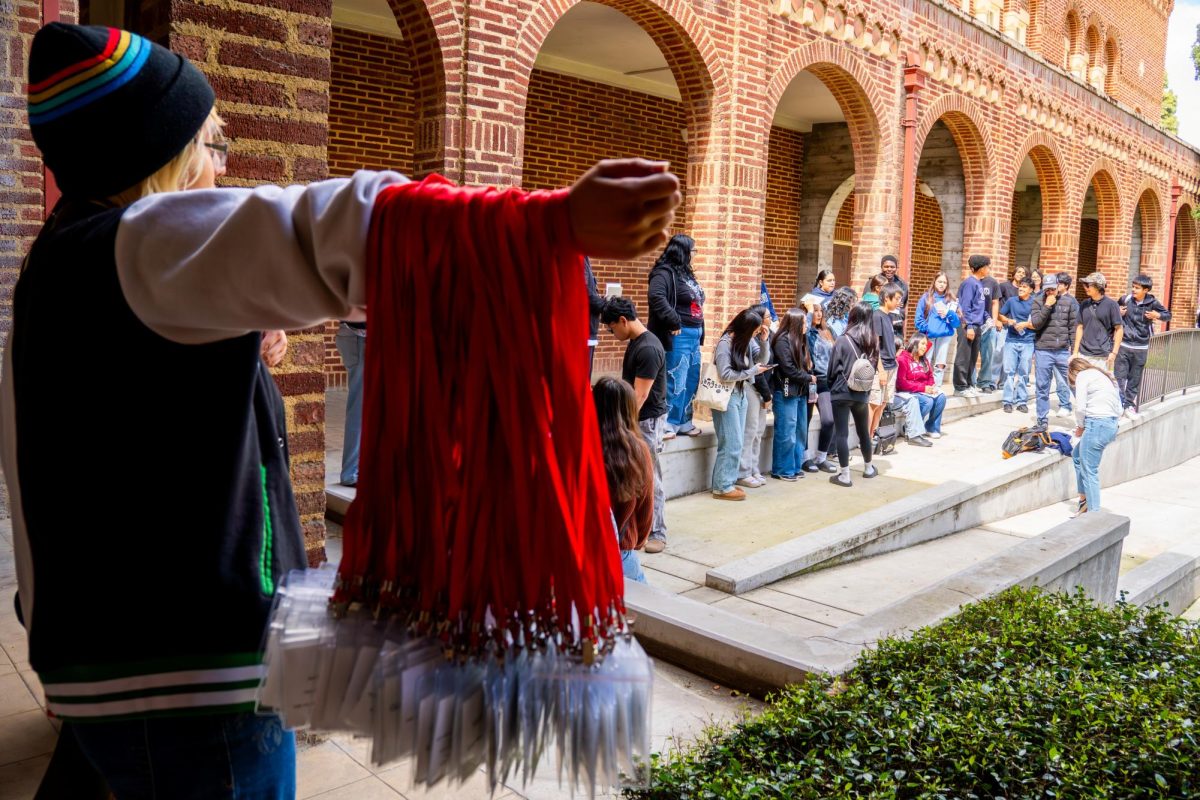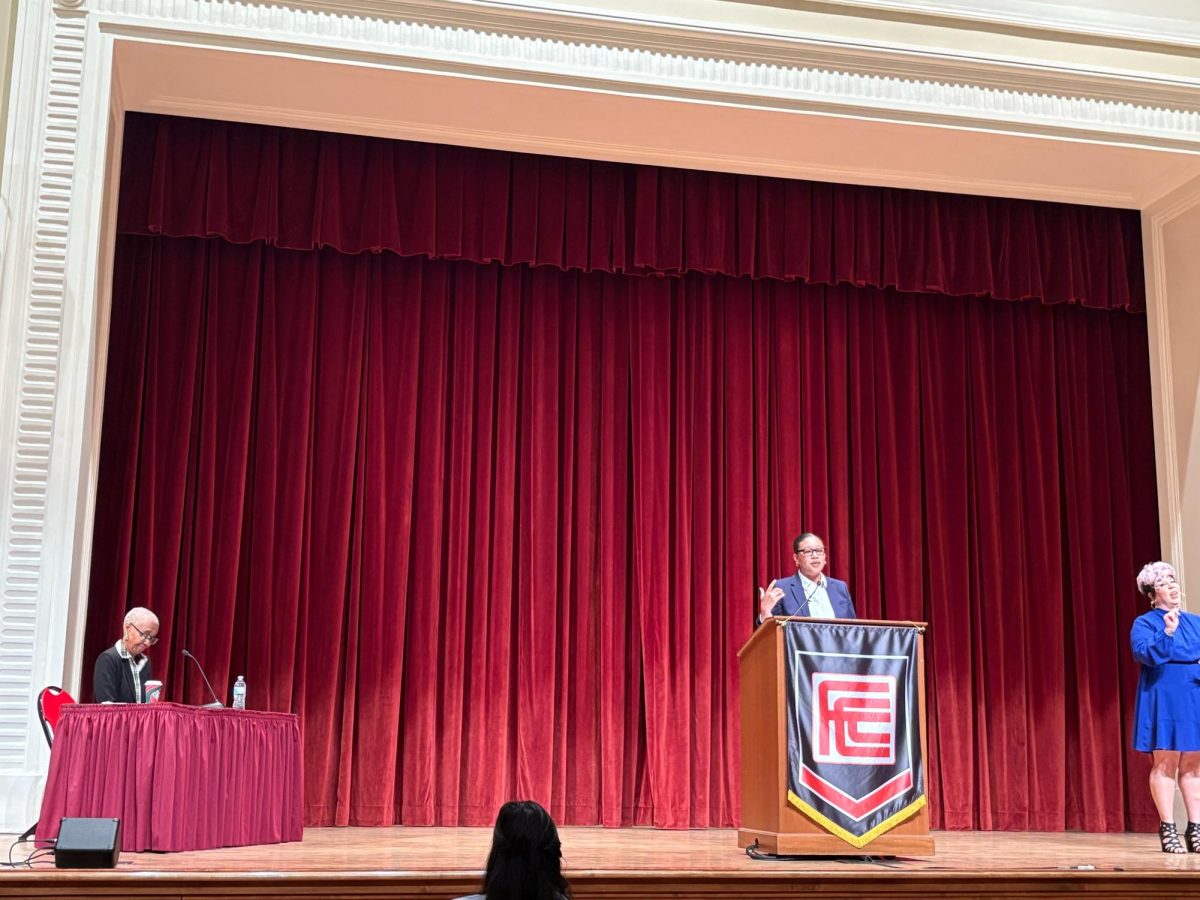Students in the State Center Community College District may be facing a drastic change to their annual schedule if the Board of Trustees has its way and eliminates an overwhelming majority of this year’s summer school course offerings during its Feb. 7 meeting.
Canceling the summer classes at all of its campuses will save the district $500,000 Chancellor Deborah G. Blue wrote in an email to staff on Jan. 27.
“We are showing savings from canceling summer session courses through the end of the fiscal year,” the chancellor had explained in another email. Blue explained that the district is recommending the cancellation of summer school in order to avoid salary cuts and layoffs of staff.
In another email to staff on Jan. 20, the chancellor had noted that her office was additionally recommending to the board of trustees “to cancel the remaining summer sessions for 2012.” Since then, the chancellor has reconsidered.
In an email to staff last Friday, Blue wrote, “After hearing from the campuses about the severe hardships this would create for students, I directed Ed Eng [vice chancellor for finance] to rework the mid-year reduction plan to include options for including at least some scaled-back summer sessions after June 30.” She stated that while the mid-year reduction plan proposal will include some form of summer session, “it will be greatly reduced.”
The chancellor’s proposal to entirely eliminate all summer offerings before June 30 and reduce the number of courses offered after July 1 does not sit well with Student trustee Christopher Coronado or Lacey Barnes, president of the State Center Federation of Teachers.
Coronado said that the proposal to eliminate summer school was like “turning on a dime” rather than planning ahead for future cutbacks.
“How successful will students be?” Coronado asked. He added that the move to eliminate a part of summer school shortchanged students, giving students roughly four weeks to complete classes designed for six weeks of instruction.
“The district messed things up and is now putting it on the backs of students,” Coronado said.
Shortening the session wasn’t the “optimal learning environment for students or teachers,” Barnes said.
“The best we can hope for is a cursory introduction to the information that you need to be learning,” she said. “Are we really talking about what’s best for the students?”
Barnes also explained that the chancellor’s explanation that not cutting summer school would mean layoffs or reduction in staff pay is not valid. Barnes explained that layoffs and salary reductions can only be implemented through the collective bargaining process.
Despite the bleak outlook for students, the college district still has an overwhelmingly large budget reserve which it could tap into to ensure that students at its largest campus can attend summer school.
According to Coronado, at the beginning of the fall semester, the district was maintaining approximately $40 million in reserve as part of a “rainy day fund.”
Coronado said he didn’t understand why in the midst of deep cuts, the district wouldn’t shell out the $500,000 to cover the cost of summer school, given its vast reserves.
And while the district faces belt tightening at its Feb. 7 board of trustees meeting, the district is also facing another spur-of-the-moment problem: under-enrollment.
One explanation of the cause is that due to the increased pressure to keep class sizes at the cap set by the district, Fresno City College and Reedley College are under-enrolled for the spring semester. Another explanation is that the district was erroneously using an old formulas to calculate the full-time equivalent student (FTES) creating a shortfall, Coronado said. This shortfall, according to email communication to faulty, would lad to a revenue shortfall for the district.
“If we don’t make the target, we won’t get the funds from the state we are budgeting for,”
one of the deans had written to faculty.
As of Tuesday afternoon, Fresno City College’s enrollment, as determined by “head count change” was down 6.6% this semester, and the school’s unduplicated head count, or the number of students counted once each fiscal year, was down to 19,600 students compared to 20,998 in the spring of 2011.
To boost enrollment, faculty were urged to add more students and disregard the earlier rules to turn students away. Additionally, FCC will add a number of 12-week courses to start on Feb. 21, with each unit being $10 less than comparable summer courses.
Coronado said that the newly suggested 12-week session isn’t a remedy to the summer school elimination proposal.
“We’re calling on students to voice their concerns to the board,” he said. “It’s incumbent upon them to speak out against this and save summer school.”
Categories:
Is Summer School Doomed
Story By: Alex Tavlian, Rampage Reporter
February 1, 2012
Story continues below advertisement
0
More to Discover






